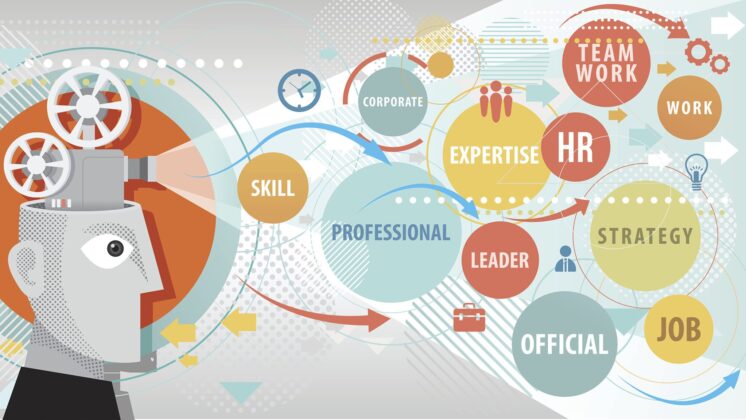Leadership with Passion through Kokorozashi
The key ingredient to success? Passion.
Finding your kokorozashi will unify your passions and skills to create positive change in society. This GLOBIS Unlimited course will help you develop the values and lifelong goals you need to become a strong, passion-driven leader.
How do you know which skills will take your career where you want it to go?
For starters, decide where it is you think you want to go—then learn to nurture yourself through challenges as they come your way. In other words, set personal KPIs for proactive skill development.
Kei Karasawa has been working in HR at Sumitomo Corporation, a general trading company, for over fifteen years. Today she’s grown beyond the role of HR manager, achieving a professional coaching certification atop a mountain of experience in organizational development, talent management, labor relations, and HR consulting.
We spoke to her about how she’s adapted her personal mission over the years and taken charge of her career through proactive skill development.
Leadership with Passion through Kokorozashi
The key ingredient to success? Passion.
Finding your kokorozashi will unify your passions and skills to create positive change in society. This GLOBIS Unlimited course will help you develop the values and lifelong goals you need to become a strong, passion-driven leader.

Seizing the Moment for Change
Insights: You’ve enjoyed a very successful career in HR, but that started unexpectedly. Can you tell us about the challenges in your early career?
Karasawa: Even as a university student, I knew I wanted to work for an integrated trading company because they do business all over the world and have a wide range of business areas. So I was really happy when I even received a job offer from a trading company.
But then, just before I entered the company, I realized that it would be boring to be stuck in a single department.
When you join a company in Japan, there’s something called a “matching interview” that determines where you’re placed. So in my matching interview, I told them I wanted to work in human resources.
Insights: Why human resources? What made you believe that would be more exciting than any other department?
Karasawa: General trading companies do not have products, but it is said that “human resources are the most important management resource.” I was fascinated by the job of HR, which involves working to make the best use of talented people. I also wanted to work with people from various countries and backgrounds to develop a variety of businesses on a global scale.
Next Article
The Myth (and New Reality) of Managers and Leaders
3 Ways to Globalize Your Career Impact from Anywhere
Learning to Pivot Priorities for Proactive Skill Development
Insights: You were interested in a trading company partly because of its international reach. Did you hope to get dispatched overseas yourself?
Karasawa: Yes, and I expected to. In my company, about 70% of the employees have the chance to be dispatched to overseas as a trainee for about two years before they become managers. So when I missed my last chance to be sent as an overseas trainee, I was shocked. Although it was possible that I might still go abroad as a manager, I felt it was long way off. There were not many young managers going abroad at that time. Also, considering my own life plan for a family, I wanted to go abroad before having a baby and raising children.
Insights: A lot of people would have given up or quit the company with that kind of disappointment. How did you handle it?
Karasawa: There was no point in bemoaning the reality of the situation. I decided to do what I could to help myself instead of just waiting for the company to give me a change, so I signed up for an English business course at GLOBIS University.
Insights: Why take the course in English?
Karasawa: Because I wanted to be ready for any opportunities that might come my way. I had to immerse myself in an environment where I could discuss business in English.
At first, I was not thinking of getting an MBA. I just wanted to take some courses on organizational development and HR, things related to my job. But as I studied more, I started to branch out to other subjects. Finally, I decided that if I was going to do it, I should do it all the way and get my MBA.
It turned out to be a good choice—I learned a lot at GLOBIS and made a lot of invaluable friends. Most importantly, I was able to regain a sense of affirmation. I had been lacking confidence because of my failure to be dispatched as an overseas trainee. Now I had my confidence back.
Putting Unique, Hard-earned Skills to Work
Insights: Since getting your MBA, what do you consider to be your biggest success?
Karasawa: We are in a rapidly changing business environment. Leaders need to be more aware of their beliefs and communicate them better than ever before. We were facing this issue at Sumitomo when I learned about an interesting NPO field trip program in which managers visit the disaster-stricken areas of Tohoku. I got in touch with a representative of the NPO, and we decided to introduce the program to my company.
Insights: That sounds like proactive skill development from many sides! The program brought managers to Tohoku for dialogue with the local leaders?
Karasawa: That’s right. Our managers listened to leaders who were struggling to rebuild and set up businesses in the disaster-stricken areas. After these discussions, our managers were able to reexamine their priorities. It helped them to develop their beliefs and management views.
It was similar to the personal mission (kokorozashi) category of courses at GLOBIS, like Keiei Dojo or Leadership Development, Ethics, and Values. As a result of the program, many participants told me that their views on life had changed, and they were now more serious about their daily work.
Next Article
Japanese Working Culture: The Good, the Bad, and the Getting Better
Staying the Course—and Correcting
Insights: Looking back on your initial mindset vs. now, have your priorities changed? Or do some goals remain the same?
Karasawa: My desire to work overseas someday has not changed, but I have come to believe that I don’t have to go immediately. I’m not in a hurry. Life is long, so I can take on challenges at the right time.
Insights: What about your plans for a family?
Karasawa: I actually had a baby while I was studying at GLOBIS! I was able to continue taking online classes after the baby was born and graduated within two years. That really made me feel that there are many possibilities available to working mothers, depending on their effort and ingenuity. I gave birth to my second child this year and am now working full time.
Insights: How about life after graduation? Did you dive back into day-to-day work or stay proactive about skill development?
Karasawa: After graduating, I became a certified coaching professional—actually something a lot of GLOBIS graduates do. Now I’m studying for a professional certification in systems coaching for organizations. I’m very active outside of my day job: I’m a director of a career education NPO called Japan Students and Businesspersons Network (JSBN), I plan various workshops, and I’ve spoken on many occasions.
My original career vision remains the same, but thanks to my experience at GLOBIS, I think my resolution has become clearer. My goal now is to create a society where everyone can work hard, but in their own way.
“Nurturing Challengers to Live Vigorously in a Turbulent Age”
Insights: How does your work with JSBN fit into your career ambitions?
Karasawa: Under the motto of “Nurturing Challengers to Live Vigorously in a Turbulent Age,” we provide career education programs to young people, mainly high school students. We also conduct workshops for parents and teachers.
The environment is similar to GLOBIS. Just by being in the organization, I can have daily discussions with colleagues who have diverse specialties and strengths. That’s really stimulating. It helps me grow.
I am also proud that my activities are connected to my personal mission of “creating a society where everyone can work vigorously.” I find them very rewarding.
Insights: What’s your advice for young people who want to nurture challenges and live vigorously?
Karasawa: Don’t be afraid to take on challenges, and your world will expand. Be honest about the passion you have in your heart and enjoy everything that comes your way.






